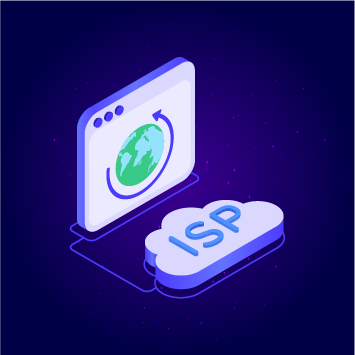The unsung heroes of internet anonymity. They let you browse the web like a ninja, sneak past restrictions like a spy, and, if you’re lucky, snag those concert tickets before bots beat you to it. But if you've ever shopped for proxies, you’ve probably noticed something curious: residential proxies are the fancy filet mignon of the proxy world, while data center proxies are more like… fast food. Delicious, sure, but much cheaper. So, what gives? Why are residential proxies so pricey? Let’s break it down—funny style. 1. Residential Proxies Are Like Real EstateYou know how they say “location, location, location” in real estate? Well, residential proxies are the Beverly Hills mansions of IP addresses. They’re tied to actual homes with legit internet service providers (ISPs). Think of them as addresses that scream, “Hey, I’m a real human just binge-watching cat videos on my couch!” Data center proxies, on the other hand, are like office buildings in the middle of nowhere. They’re generated by servers in bulk, and while they get the job done, they might as well wear a sign that says, “I’m a robot. Please block me.” Residential proxies cost more because they’re authentic and harder to detect—like a secret agent in a tuxedo versus a guy in a cardboard robot suit. 2. They’re Harder to GetImagine trying to gather residential proxies. It’s not like you can just knock on someone’s door and say, “Hi there! Mind if I borrow your Wi-Fi for some proxy magic?” Providers have to partner with ISPs or rent access to residential IPs through legitimate means. It’s a lot of work, and naturally, that effort comes with a price tag. Data center proxies? Those are whipped up in bulk like instant noodles. Cheap, quick, and no one’s asking too many questions. 3. They’re Sneakier Than James BondResidential proxies are stealthy. They blend into the digital crowd like a chameleon at a paint store. Websites see them and think, “Oh, just another regular person doing regular internet stuff.” This makes them perfect for tasks like web scraping or bypassing geo-restrictions without setting off alarm bells. Data center proxies? Not so much. They stick out like a sore thumb at a thumb convention. If websites are bouncers, data center proxies are the guy trying to sneak into the club with a fake ID that says “McLovin.” 4. Supply vs. DemandHere’s some economics 101: residential proxies are in high demand because they’re so darn effective at flying under the radar. But since they’re harder to obtain, their supply is limited. Combine that with their premium performance, and voilà—you’ve got yourself a luxury product with a luxury price tag. Final Thoughts So there you have it: residential proxies are expensive because they’re authentic, hard to acquire, stealthy, and in high demand. Data center proxies might be cheaper, but they’re also easier to spot than a clown at a funeral. If you’re just casually browsing or need something quick and dirty, data center proxies will do the trick. But if you’re looking for top-tier anonymity and performance? Well, my friend, get ready to shell out for those residential proxies. After all, even ninjas need to pay rent!
2025-01-14









